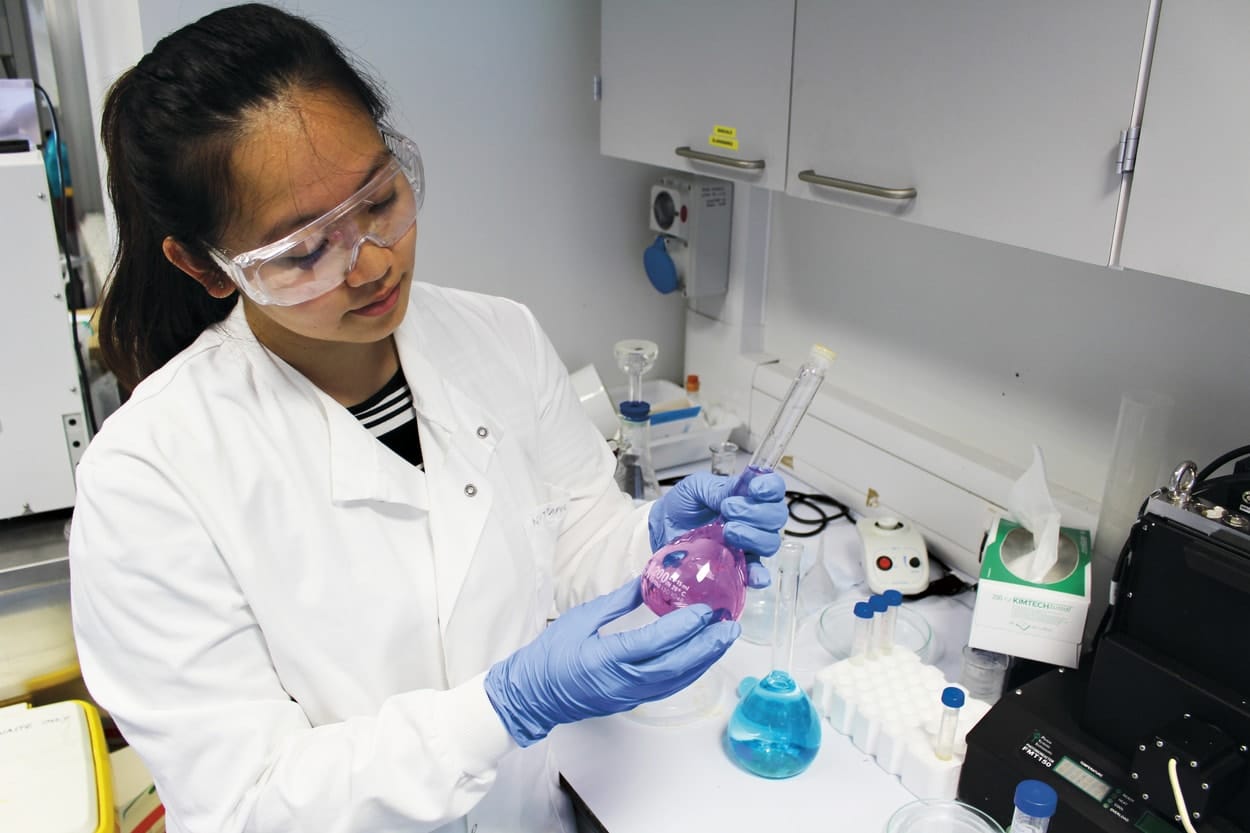
Dr Sze-yin Tan is young, smart and ambitious, and she combines that drive with a love of science and mathematics.
Access to training at the highest university level proved life-changing for her, transforming a powerful intellect into a researcher who today is helping mastermind important advances in clean recycling technology.
Her current target is the lead batteries used in vehicles that, under existing recycling methods, are toxic to the environment and to human health.
The public-good aspect of her work strongly appeals to her. At the same time, the recycling project continues an intellectual journey that started during her PhD – the ability to marry skills and disciplines in ways that amplify her problem-solving capabilities.
Tan was the first science student to complete a PhD within the Alliance’s joint PhD program
Such multidisciplinary approaches currently constitute the frontline of innovation.
Tan’s journey started with a PhD project jointly run by Monash University in Australia and the University of Warwick in the UK, made available through the Monash Warwick Alliance.
The Alliance was formed in 2012, explicitly to broaden the horizon of students earlier than usual by exposing them to international collaborations and expanded access
to research resources, perspectives and opportunities.
Malaysia-born Tan was the first science student to complete a PhD within the Alliance’s joint PhD program, spending two years in the UK and one in Australia, which she describes as her favourite country in the world.
Her research centred on the electrochemical properties of carbon materials such as graphene – work that provides a foundation for the development of powerful sensors that can, for example, detect metal pollution in wastewater or the environment. As such, her project sat at the intersection of electrochemistry, materials science and sensor technology.
"Scientists tend to seek the best possible or ideal result, while engineers often look for the most practical solution. So, my next learning step is to better bridge the differences in how scientists and engineers may think.”
“One of the Alliance’s main advantages was access to research facilities and know-how from both universities, which meant I could create my own unique area of research,” she says. “That access really distinguished the work I did.”
Tan also demonstrated a flair for international collaboration that allowed R&D networks and collaborations to prosper between the two universities – a highly valued skill within the R&D sector.
The provision of such high-end skills is why Monash School of Chemistry Emeritus Professor Alan Bond describes the Alliance as allowing young researchers to fast-track their careers in innovation.
Tan agrees: “I started my career ahead of the game, almost with an extra qualification. I can’t recommend the program enough.”
Now, she’s building on that foundation, adding engineering to her multidisciplinary skill set and branching out into work with industrial applications.
“Scientists and engineers can perceive things quite differently,” she says. “Scientists tend to seek the best possible or ideal result, while engineers often look for the most practical solution. So, my next learning step is to better bridge the differences in how scientists and engineers may think.”
Tan was supervised by Professor Patrick Unwin and Professor Julie Macpherson at the University of Warwick, and by Dr Jie Zhang and Professor Bond at Monash.





